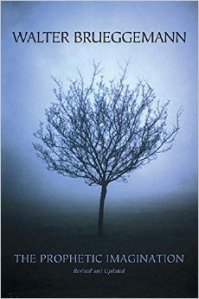In studying theology, I am learning things I didn’t expect to, primarily about God, but also about the world and about myself.
Over the first few months of the course we’ve been asking ourselves: how do we know what we know about God? Where does our information come from? We have been challenged to consider what presuppositions we might hold, and think about how they affect what we believe.
I discovered one of my own this week, one of my deepest and most strongly held presuppositions, in that process, I was shaken.
My presupposition was this:
When I look for God, I will find him. When I seek Him with all my heart, soul, mind and strength, or even when I catch sight of Him out of the corner of my eye, I will encounter Him and be brought deeper into relationship with Him.
Why did learning this about myself shake me?
Because, for some reason, I expected that having presuppositions was a bad thing, and the academic process has a tendency towards suspicion – something I’m starting to notice in the responses of my coursemates in forum discussions. I felt like someone was trying to tell me this week that I had to be cautious when it came to my experiences of God, in case the worship music had heightened my emotion; that I had to mistrust my reaction to artwork that wasn’t biblically accurate; that I need to separate myself from culture in case it leads me away from God; that I am out of my depth on this course because I want to see the merit in everything.
Of course, I didn’t realise this straight away, my primary reaction was emotional because I feel very deeply. But I think deeply too, and my mind wouldn’t rest until I figured out why I was so hurt by comments that were in no way intended to be hurtful.
Last week I wrote about my words for 2015, and in a lovely twist of God-incidence, this week at homegroup we were talking about what it means to have core values. I realised that this is what picking a word for the year is for me – it helps me to make decision to define my year, but each word gets absorbed into my life. I am still dedicated (2012) to serving God; I am still seeking to change (2013) and grow; I still want to be healthy (2014) in all areas of my life. This week I realised that trust (2015) is already an integral part of my character, that suspicion is quite alien to my nature.
I’ve realised that I cannot be cautious is seeking to encounter God, but instead that I trust Him to be true, even if my motives or emotions or thought processes are faulty.
And I still trust that I will find Him when I seek Him, even if I am searching in places that others wouldn’t think to look.
I love allegory. I love it when God turns up in a place I hadn’t expected to find Him. I love being led to worship Him at a rock concert or listening to a pop song. I love discovering truth about God when watching a film about good and evil, or someone sacrificing something for someone they love, or someone going on an adventure. I love watching tv shows that challenge me and remind me of the terrible state of the human condition and how much we need a saviour. I love seeing people use their talents to create something amazing, because the creative process gives glory to the Creator God, who made us in His creative image (even when the ones doing the creating don’t realise they are doing this).
Yes, I have presuppositions, and yes, some of them will need to be challenged.
But this is one I am holding onto:
“You will seek me
and find me
when you seek me
with all your heart”
(Jeremiah 29v13)
Be on the look out for God and you will find Him, even in places you’re not expecting to see Him.


